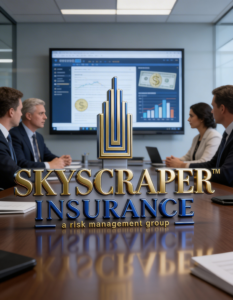Taking time to secure high-quality vendors via an insured-directed MSA fosters better disaster-recovery outcomes.
Over the years, I have been surprised by how many companies will direct and negotiate vendor contracts but take a more passive role when it comes to disaster recovery services.
Companies sign recovery-contractor agreements on either a per-job basis or with a Master Service Agreement (MSA). It makes little sense that a building owner would not direct these contracts themselves. There are many reasons for an insured to do this, which I will demonstrate below.
Drafting your own agreement
Contract language tends to benefit the originator in everything from payment terms and penalties to venue, applicable laws, qualifications, insurance types and insurance amounts. For this reasons, owners should be the ones directing MSAs. For any company currently in the habit of signing the contractor’s agreement, now is a good time to draft your own.
Start with a thorough review of the contractor’s rate sheet and terms. Review before your next emergency need and not when you urgently require the services of these vendors. In plainer words, do it now. Get expert advice as you do this. Seek assistance from your adjuster, insurance broker and project management company who are all familiar with and/or have experience with these rate sheets and contracts.
There may be some rates or terms that are not suitable. Language can be added to an MSA that supersedes contractor rate-sheet language with more acceptable terminology. If there are terms you don’t agree with and the vendor will not change, find another vendor. Any contractor who has trouble with an owner directed MSA, comparing rates and requiring more openness and transparency, should be questioned. Make your life easier as there are plenty of contractors willing to work with you.
Managing terms, rates
As you do this, ensure fairness to the contractor and do not ask for unreasonable terms. It is good to remember that disaster-recovery contractors are prepared, trained and staffed to provide you with services for a job that they can never fully anticipate. They should be ready to respond and perform. But they’re not banks. Keep that in mind as you draft an agreement.
You want to do all you can to mitigate difficult invoice and payment negotiations that often take place at the end of a project by preparing before you need those services. It starts with a clean MSA.
Here are some key items to examine when reviewing rate sheets:
- Overall rates as compared to the general market;
- Surcharge types, amounts and durations;
- Exclusions of support materials that will be provided by the contractor;
- Weekly and monthly discounts on items provided, subcontracted or rented by the contractor that should also benefit you; and
- Stand-by time and travel charges.
More things to review
Any or all of the above-mentioned recovery professionals can help you with this. Long-term relationships with good vendors will be improved as more clarity is added to what is expected of them. This will also improve interactions with your adjuster team when it comes time to settle the claim.
For the non-insurance projects employing the same contractors, this will help protect you and deliver more performance consistency.
Good vendors will welcome your direction and should not have a problem with greater transparency in the process. Preparing for and taking the time to have quality vendors working under your terms will go a long way in achieving better outcomes in your disaster-recovery projects in terms of cost, time and peace-of-mind. Do it now.









